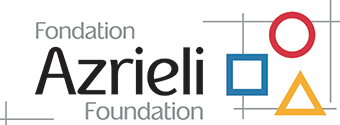When you consider teaching exceptional students, you may find yourself thinking some of these thoughts:
“That’s not my specialty…”
“I don’t have the right personality…”
“I have no idea where to start…”
Does this sound like you? In fact, these are some things I would have said myself not too long ago. Many cultural norms and misconceptions tell us that in order to have success teaching exceptional students, we need to have unique characteristics, abilities, or many years of specialized training. But this is not the case! Actually, it turns out that shifting your mindset and learning some simple tools and strategies can make a world of difference for both you and your exceptional students.
Shifting your mindset:
First of all, imposter syndrome is real. We all experience doubts and a lack of confidence in our abilities as special music educators, especially at the beginning. As musicians, we are trained to have very high standards for ourselves. While this can help us reach high levels of performance, it can also make us hesitant to try new things if we don’t feel completely confident from day one. It’s important to try and accept these feelings for what they are, and then reframe them. When you start teaching exceptional students, you will be opening yourself up to a new world, and with it comes a lot of uncertainty. Yes, your lessons will likely not be perfect: things may not go as planned, it may take some time for you and your students to get comfortable, and some days you may feel like you are just “winging it.” This is all OK though! In fact, these uncertainties also come with incredible opportunities to benefit you and your students. Over time, you will feel more capable as you get to know your exceptional students better and gain more experience.
Benefits of special needs teaching:
So let’s talk about some of those benefits. Maybe you’re looking to expand your teaching skills, grow your studio, or even get more involved with your community. It turns out that teaching exceptional students can bring new opportunities for all of these things!
1. Expand your teaching skills: Part of teaching exceptional students is getting a better understanding of basic musical skills. Many smaller skills that go into music making (like recognizing symbols, counting, and others) can develop naturally for typical students, but not for many exceptional students. That means we as teachers need to think carefully about all the components of what we are teaching students to do and how we are getting them to do it. This includes evaluating their individual strengths, areas for improvement, learning styles, and finding new and creative ways to help them learn. Along this journey, you will be learning along with your students. That means you can find the way that works best for them because you aren’t coming in with prior conceptions about how they “should be taught” based on a certain method. Adapting your teaching for the needs of each individual will give you a whole new toolbox of conceptual knowledge, activities, and communication skills, which will make you a better teacher to every one of your students!
2. Grow your studio: At the Lotus Centre, we believe that children of ALL abilities are capable of music learning. That means that there are likely children and adults nearby who would greatly enjoy and benefit from music lessons. Once you open yourself up to that possibility, you will find yourself surrounded by potential students. They are ready to learn music, but have never been given the chance because they were considered unable to do so. The first step in this is letting your community know that you believe anyone can learn music and that you are ready to teach them.
3. Build meaningful new relationships with members of your community:
3. Build meaningful new relationships with members of your community:
Music education can have a wide variety of benefits for students with exceptionalities! It gives them a chance to have success at a fun activity. It also gives them a chance to build a relationship with a teacher and connect with other musical peers. These benefits even go beyond the individual students and into the wider community. We hear from parents regularly that they never thought their child would be able to learn music like typically developing kids. The tears of joy in their eyes when they see their child performing at the recital says it all! The difference you make for your students and the community will be far more meaningful than any feelings of doubt or imposter syndrome ever could.
Now you’re ready!
Once you’ve shifted your mindset and realize that you can be a Special Music Educator, you’re ready to get started! There may be challenges along the way, but we’re here to help! Our programs are designed to assist you on this journey, so you can start getting these benefits for you and your students. We’re excited to help you be the best teacher you can be!
Happy Teaching!
Happy Teaching!



